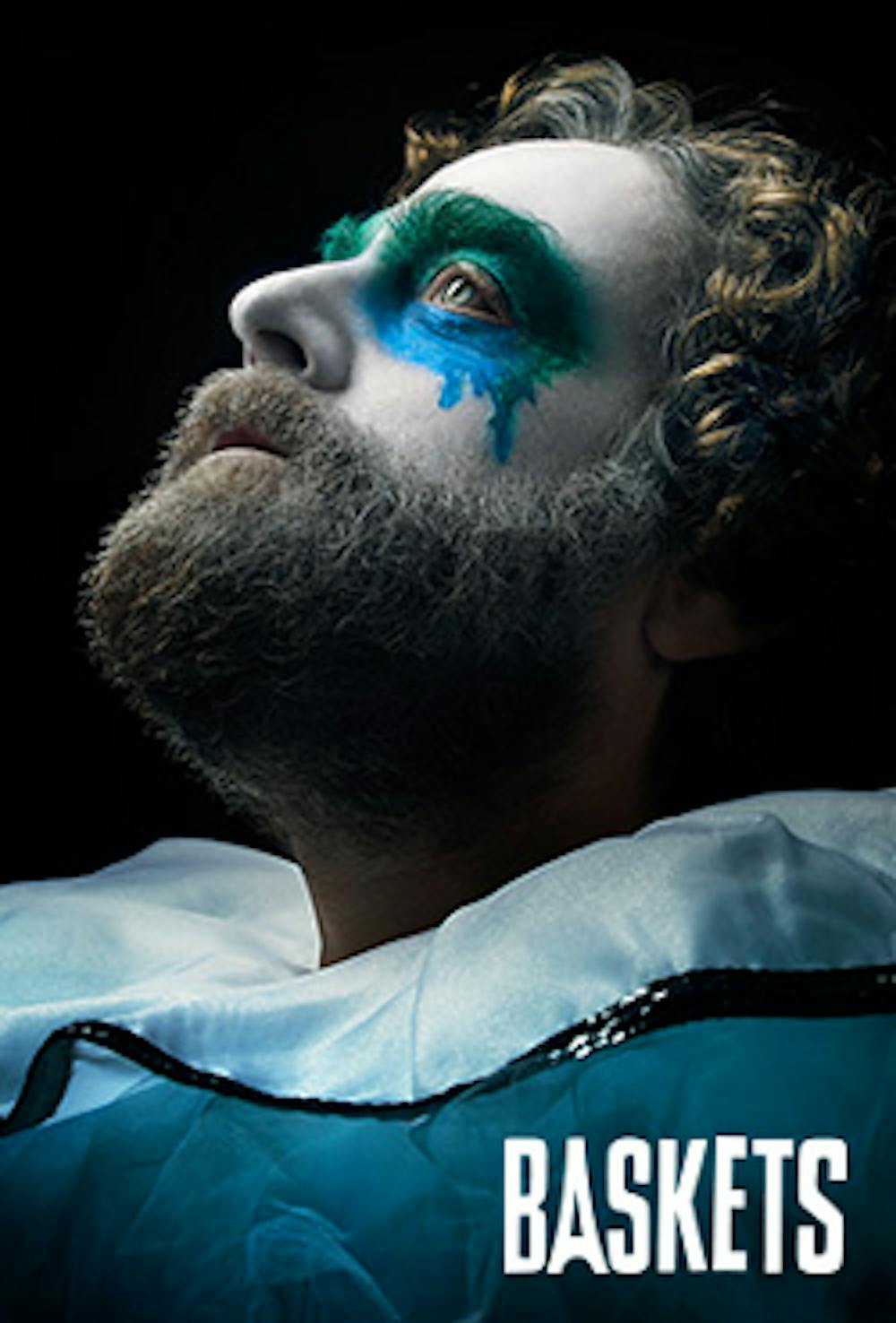From the visionary mind of Zach Galifianakis, FX brings season 3 of “Baskets” to the small screen. In a show where nothing is out of the question, season 3 brings surprising depth and complexity, searching past the facade of clown makeup and rodeo shenanigans to provide a stunningly vulnerable commentary on the dynamics of a family.
“Baskets” stars Galifianakis as twin brothers Dale and Chip, the former a failed businessman and the latter a French trained clown. Along with their mother Christine (Louie Anderson), the Baskets family purchased the Bakersfield rodeo where Chip has worked as a rodeo clown. Throughout the season, the family strives to bring something new to the rust- and mud-covered exterior of the rodeo whilst simultaneously coping with the difficulties of running a family business.
From the moment we are brought into this world as a member of a family, we sign an unspoken contract that regardless of what happens, what mistakes we make, we will love our family and be loved by them — unconditionally. “Baskets” pushes this contract to its absolute limits. Every time Christine adds charges to the company credit card without the awareness of her financial supervisor, Dale, or every time Chip fails to be the employee that his mother and brother wish, this contract is tested.
The rodeo is, from its outset, a doomed business. It barely survived when knowledgeable people were at its helm, but now, with Christine and the rest of the Baskets trio steering the ship, it is almost inevitable that there will be choppy seas ahead. Despite everything that happens, every poor financial decision that sends a sharp pain to Dale’s back, the family remains, because in the end all we have is family.
Family, however, is not limited to those related to us; family is the collection of individuals we surround ourselves with, the people with whom we share our time. The Baskets family grows with each person Chip, Dale or Christine chooses to spend their time with. Chip’s best friend Martha (Martha Kelly), a Costco telephone operator, plays an integral role in the family’s business, constantly being swept away from her office to join Chip on one escapade or another. Christine’s boyfriend Ken (Alex Morris), the Carpet King of Denver, is struggling to fill both the role of loving Christine while also being the father figure that Dale and Chip have lost.
Along with her sons, Christine struggles with splitting her time between being the CEO of a rodeo, an activity she must do, and playing cards with her friends, an activity she wants to do. With each member of the family, we are tasked with reconciling our needs with the needs of those around us. After holding a funeral for his clown persona Renoir because of its insensitivity towards French culture, Chip is forced to create a new persona to portray. However, his attempts to create this character are constantly thwarted by some aspect of the rodeo requiring his direct attention.
The addition of each new family member creates an ever-growing strain on the Baskets to be everyone and to be everywhere. They need to be simultaneously a CEO and game night friend, a financial advisor and a brother, a performer and a son. It is, quite literally, impossible to be all these things at once, so each individual must decide how to allocate their time to suit not only their needs, but the needs of everyone around them. No matter what decision they make, no matter how they spend their time, someone will be disappointed.
It is from these reactions that we discover who our family truly is, because our true family forgives. For example, when Dale yells his way out of the New Year’s Eve party with his family, his mother hugs him upon his return. However, when Christine is forced to spend her nights working behind the desk of the rodeo, her friends replace her in her group and talk behind her back. These reactions, these defining moments, tell us who is in our family, who loves us unconditionally and who is in the relationship for themselves.
“Baskets” may seem to be a simple comedy, one of many on television today, but after the final fade to black of its conclusion, we cannot help but thank the show for providing us with such profound wisdom, for providing us with the essential nature of life. “Baskets” is a show full of wit and humor, of pratfalls and silliness, but at its essence it is a show full of heart and emotion. Its unique subtlety reveals the true nature of a family, and offers its viewers with unparalleled insights into the inner workings of love and life. It is only through watching someone else act as a family that we can truly understand our own.

Owen Mason-Hill ’22 is the Senior Arts & Culture Editor.
He previously served as a staff columnist, writing film reviews under the Reel Critic column. Mason-Hill is studying for a Film and Media Culture major, focusing his studies on film criticism and videographic essays.
His coverage at The Campus focuses primarily on film criticism, and has expanded to encompass criticism of other mediums including podcasts, television, and music under his column “Direct Your Attention.”




